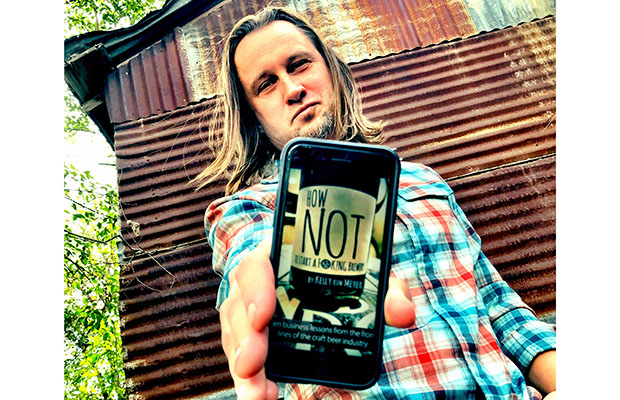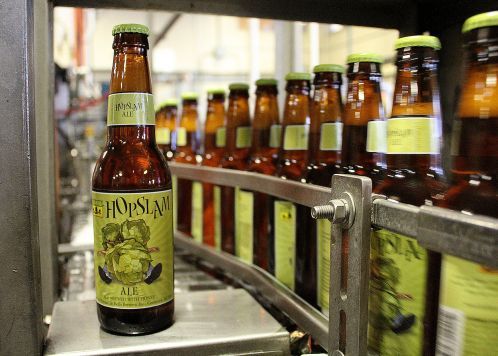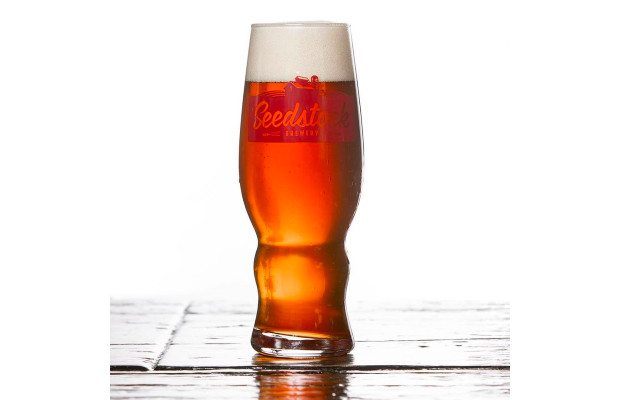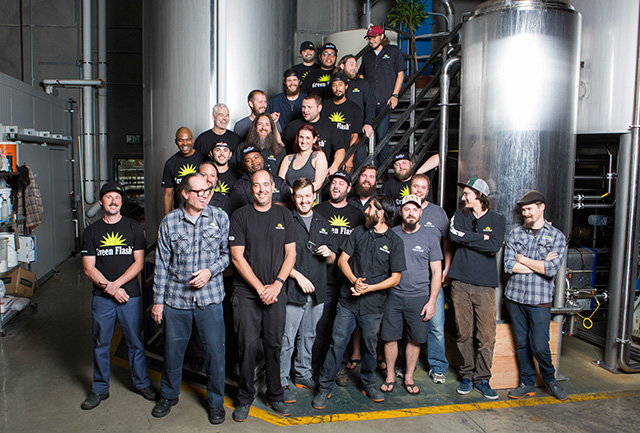
Brewer Magazine will share business and personal insights from Brewmasters, Head Brewers, Brewing Managers, Sales Directors, QCQA Managers and others each weekend to help you get to know each other better in the industry and learn more to better develop your own brand.
BREWER: How do you feel your job has had to adapt in the beer market compared to a few years ago?
MEYER: I have taken on significantly more roles due to layoffs. I’ve also reformatted my beer offerings to 12oz bottles, which has dynamically increased supply ordering, production schedules and overall workload. I travel less and still manage to work more.
BREWER: Who is your mentor in the industry and why?
MEYER: I don’t have mentors so much as friends I bounce ideas off of. I’m not a hero guy, either. I listen to everyone and glean what I can, usually with a skeptic’s cynicism.
BREWER: What have you learned from them?
MEYER: How quickly this industry has changed I’m the last eight years and particularly the last two. The more owners I talk to the more I learn how horribly close to dying most breweries are right now. Whether their sales are $30K per month or $120K, profitability is a pretty universal struggle. By talking with friends I’ve also learned how to expand distribution, the advantages of rotating SKUs at retail and even how to use our automated bottler.
BREWER: Can you share a success story that you are proud of in your job or maybe a story of how you learned from a situation that has altered your thoughts on how you do your job now?
MEYER: Yeah if we’re still in business in a year, the reformat of PKL FKR to 12oz bottles will be the reason. In January, 2019, I recognized (a little late) that bombers were dead beyond resuscitation. I ran 10 cases of 12oz 4-packs and tested them. Based on that data I ran 30 more. I continued to increase output until we reached 300 cases per month by February, 2020, and added additional products in the 12oz bottle format. We now have a product that has a healthy Gross Brewing Profit and an aggressive depletion rate at retail with recognizable variants that deplete even quicker. Without the success of that format pivot we would have closed down as early as February, 2019.
BREWER: Can you touch on something your brewery has added lately that’s unique or making your business more successful (it could be equipment, technology or people)?
MEYER: On the people side, I’ve actually subtracted over the past year and that has been a big advantage. I run supply ordering, brew schedule, packaging days and even the lineup for the Tasting Room and our Bottle Club. It makes everything tie together seamlessly and harmoniously, which has saved money as well as increased revenue. On February 26, 2020, we also ran a Meheen 6-head filler/crowner for the first time. On the first day I increased output by 35% and decreased payroll by 20%. As I dial that machine in, the cost savings and production increases will make dramatic improvements to the bottom line.
BREWER: If you had one business strategy that you could implement to better the brewing industry, what would it be?
MEYER: Unpopular opinion? We need at least 20% of the currently operating breweries to close. There are too many bad beers being produced by bad business plans and bad operators. These breweries are holding on by restructuring debt, selling more investor shares or just entering bankruptcy protection. Until they close and open up the market for the well-run breweries, there is very little a brewery can do to ensure profitability. Margins will remain tight, sales will continue to be inconsistent and staff challenging to retain. Of course this won’t happen and we’ll end up at 10,000 domestic breweries soon enough. So the best plan is to invest in your loyal fans in your brewery. Improve the tasting room and marketing to your existing fan base to encourage them to use it. Translation: Make money at home.






Be the first to comment